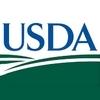Dietary Bacillus subtilis-based direct-fed microbials alleviate LPS-induced intestinal immunological stress and improve intestinal barrier gene expression in commercial broiler chickens
This study investigated the effects of Bacillus subtilis-based probiotics on the performance, modulation of host inflammatory responses and intestinal barrier gene expression of broilers subjected to LPS challenge. Chickens were randomly allocated to one of the 3 dietary treatment groups - control, antibiotic, or probiotic. At 14 days, half of the chickens in each treatment were injected with LPS (1 mg/kg body weight), and the other half injected with sterile PBS. Chickens fed probiotics weighed significantly more than controls at 15 days of age, irrespective of immune challenge. LPS challenge significantly reduced weight gain at 24 h post-injection, and the probiotics did not alleviate the LPS-induced reduction of weight gain. Serum α-1-AGP levels were significantly higher in LPS-injected chickens, and probiotic supplementation significantly reduced their levels. The percentages of CD4+ lymphocytes were significantly increased in probiotic groups in the absence of immunological challenge but were reduced during LPS challenge compared to controls. CD8+ lymphocytes were significantly reduced in probiotic-fed birds. The LPS-induced increase in the expression of cytokines IL8 and TNFSF15 was reduced by probiotic supplementation, and IL17F, iNOS expression was found to be significantly elevated in probiotic-fed birds subjected to LPS challenge. The reduced gene expression of tight junction proteins (JAM2, occludin and ZO1) and MUC2 induced by LPS challenge was reversed by probiotic supplementation. The results indicate that B. subtilis-based probiotics differentially regulate intestinal immune and tight junction protein mRNA expression during states of LPS-mediated immunological challenge.
Keywords: Chicken, Probiotic, B. subtilis, Cytokine, Tight junction, LP.
Abstract published in Research in Veterinary Science 114 (2017) 236–243. http://dx.doi.org/10.1016/j.rvsc.2017.05.004.
























